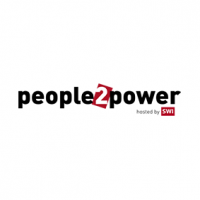What happens when the people want to go in one direction, and the government wants to go in another. A new publication by International IDEA offers insights and outlooks to the use of modern participatory democracy, writes Frank McLoughlin.
In 1955, Sweden faced a dilemma. At that time Swedes drove on the left side of the road. The majority of Continental Europeans, however, drove on the right. Sweden´s government acknowledged that driving on the left with cars designed for right-side driving (as most cars in Sweden were at that time) increased the risk of accidents, particularly on narrow roads. Driving across borders into right-side driving Norway and Finland also proved to be a headache. European pressure mounted on Sweden to make the change.
Seeking public feedback, Sweden called for a non-binding or consultative referendum on the matter. Although the turnout was low by Swedish standards (53%), the result was unambiguous approximately 83% rejected the proposed change. Nevertheless, international pressure continued to grow and, without resorting to another referendum, the Riksdag (Parliament) ultimately adopted the change in 1963. The change went into effect in 1967 without significant protest (or major accidents), following a vigorous campaign educating drivers about the transition. In this case, a seeming inconsistency between an expression of the popular will and the priorities of elected officials was resolved without major controversy.
Be aware of the plebiscites
Other countries have not gotten off so easily. The Brexit plebiscite result has caused political turmoil in the United Kingdom that lasts today. Recent, narrow popular votes results in Turkey (on the constitution) and Colombia (on peace with rebels) seemed to some to raise more questions than answers about the messages the voters were sending their elected leadership and whether they could be reconciled with the governments objectives. In Australia, a government initiated postal survey on same-sex marriage has proved highly controversial.
A new publication, the Global Passport to Modern Direct Democracy, seeks to explain in clear terms the variety of direct democracy mechanisms available in countries around the world, and some of the pros and cons of direct democracy approaches. As discussed in the Global Passport, at best, modern direct democracy mechanisms, such as citizens initiatives, popular referendums, participatory budgeting, and e-petition movements, can provide citizens with an opportunity to engage in self-government, and help ensure accountability of elected representatives.
A direct democracy that works
The Global Passport provides worldwide data on the availability of direct democratic processes and the frequency of their usage in different countries. It also provides case examples of both positive and negative uses of this mechanism to effect change. In the case of plebiscites, popular votes on substantive issues called by a government or political leader to provide democratic legitimacy to a proposed action or program, the Global Passport describes potential pitfalls of this approach for democratic leaders, and how some autocratic leaders have used plebiscites to ratify unjust or undemocratic objectives.
The new guide to active citizenship and is designed for many audiences, including citizens who wish to learn more about direct democracy mechanisms available in their localities, countries, or regions of the world; designers and administrators of direct democracy mechanisms; supporters and opponents of direct democracy; and journalists.
The Global Passport was authored by the Swiss Broadcasting Company´s global democracy correspondent Bruno Kaufmann and produced by the International Institute for Democracy and Electoral Assistance (International IDEA), the Swiss Democracy Foundation, and the Government of Switzerland. It will be launched on September 15th at this year´s celebration of the International Day of Democracy in Falun, Sweden and is available on line. http://www.idea.int/publications/catalogue/global-passport-modern-direct-democracy.
Frank McLoughlin is Programme Officer in the Electoral Processes Programme at International IDEA. The opinions expressed in this piece are not necessarily those of International IDEA.




